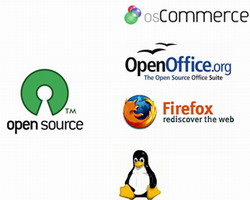TECHNOLOGY-CUBA: Widespread resistance to accept Free Software
- Submitted by: admin
- Computers and Internet
- Science and Technology
- 09 / 22 / 2007

The overwhelming majority of this Caribbean island nations computers run on illegal copies of the Windows operating system, produced by United States software giant Microsoft, and use pirated versions of programmes for which no license fees are paid, which are also in effect free to users.
"Theres still a great deal of resistance to the change," acknowledged Yudivián Almeida, a professor in the mathematics and computer science department at the University of Havana. In his view, Cubans are impervious to the argument that free software costs nothing, because the U.S. embargo of the island means it is obliged to ignore licence fees anyway.
"We need to talk about freedom, about knowing exactly what youre using, and having the opportunity to adapt the software to your needs," Almeida, who coordinates the Free Software and Linux User Group at the university, told IPS.
In Almeidas view, apart from the millions of dollars in license fees that Cuba would have to pay if its relations with Washington are normalised, progress in the countrys IT industry depends on having licenses that are recognised by the international market, and at the moment only free software meets that condition.
"At one point we started using proprietary software on the principle that Cuba has a right to develop," said Almeida. "But now that there is an alternative, why should we continue to use it?"
The General Public License (GPL) created by U.S. software developer and software freedom activist Richard Stallman states that free software must comply with four freedoms: the freedom to run the programme for any purpose; the freedom to study how the programme works and adapt it to your needs; the freedom to redistribute copies so you can help others; and the freedom to improve the programme and release your improvements to the public, so that the whole community benefits.
Stallman visited Havana in February for an international IT event, and took the opportunity to recommend changing over to free software. "The main obstacle is social inertia, but Cuba is experienced in fighting major obstacles," he told the newspaper Juventud Rebelde.
In May 2005, the head of the Office for Computerising Cuban Society, Roberto del Puerto, announced that the government was preparing for its central administration offices to switch to free software, specifically the GNU/Linux system, which uses the Linux kernel written by Linus Torvalds of Finland in 1991.
A national group was formed for this purpose, including representatives of the ministries of education, justice, interior, higher education and the armed forces, the customs service, the Office for Computerising Cuban Society, the Computer Sciences University, the University of Havana and the José A. Echeverría Institute.
Two years later, in July 2007, the deputy minister of IT and Communications, Jorge Luis Perdomo, told Juventud Rebelde that using free software is part of a strategy to attain technological sovereignty, and is a "pillar of national security."
According to Perdomo, gradually weaning off of Windows is a challenge "as much in terms of material resources as in terms of training. At the moment organisational and security aspects are being structured so as to create the necessary conditions to facilitate the changeover in the countrys institutions."
So far, only the customs service has adopted the GNU/Linux system on all of its computers, although servers at the electronic health information network Infomed, and at the University of Havana, have also been using GNU/Linux since the mid-1990s.
"Tailor-made applications are the biggest problem," Almeida said. These programmes are written to solve specific problems, and tend to run on Windows, as do many of the multimedia products widely used in the national educational system.
However, expanding the adoption of an operating system like GNU/Linux does not seem to enjoy unanimous approval among experts. "We have to go on using Windows, because it is still providing new developments. To do otherwise is crazy," an expert on IT platforms who wished to remain anonymous told IPS.
Some 4,000 people have trained as GNU/Linux operators by taking courses at the more than 600 Youth Computer and Electronics Clubs, which are organised by the Young Communist League and are dedicated to spreading knowledge of new technology throughout the populace.
The governments model of "social appropriation of information and communication technologies" prioritises installation of computers and databases in sectors such as health, education, culture and scientific centres, over individual access.
"The Youth Clubs are very helpful in promoting free software systems," said Almeida. "They are working with the community of free software users to organise a Latin American Festival of Installation of Free Software (FLISOL) in Cuba, the main events of their kind, which are celebrated every year all over the continent."
"In Cuba, there is a community of people who like and promote free software, but they are not at all institutionalised," said Almeida, who has a degree in computer science. "More and more people are interested in learning Linux, but its still a 'guerrilla movement that isnt taken seriously enough."
"We have to emphasise the philosophy of free software, the ideas of cooperation and freedom of information. The ideas of the Cuban Revolution are compatible with this, so why not work more closely together in the field of intellectual development? I think of this as a crusade against the privatisation of knowledge," the expert said
Source: By Patricia Grogg, IPS
Comments